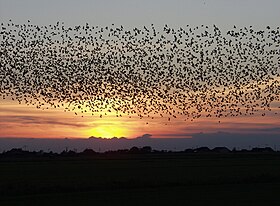|
List of Piciformes by population
This is a list of Piciformes species by global population. While numbers are estimates, they have been made by the experts in their fields. For more information on how these estimates were ascertained, see Wikipedia's articles on population biology and population ecology. This list is not comprehensive, as not all Piciformes have had their numbers quantified. Species by global population
See alsoReferences
|






























